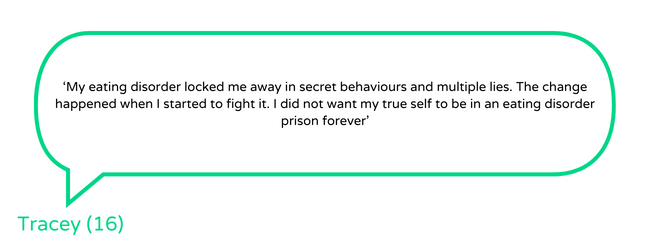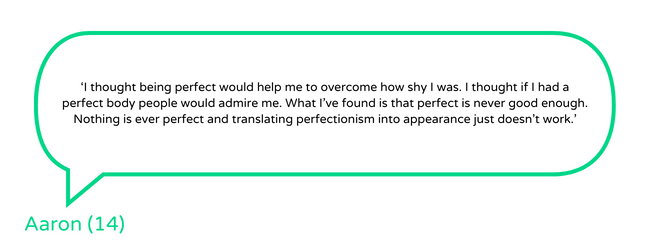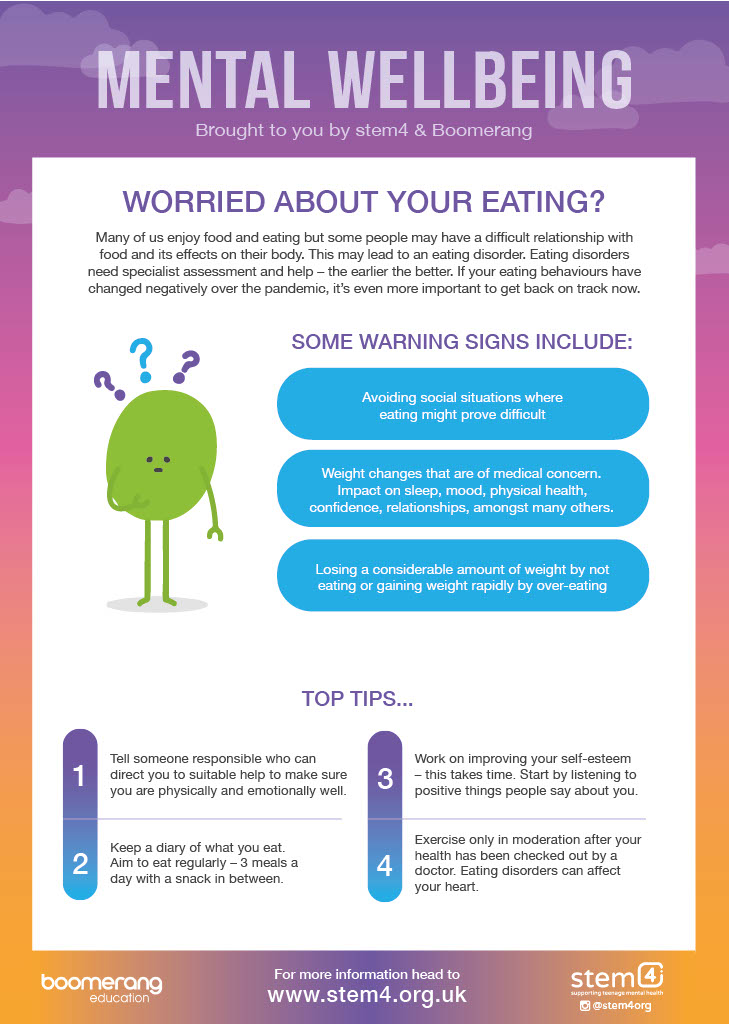How do I know if I have an eating disorder?
A doctor will need to diagnose an eating disorder. Some signs are listed below but a person doesn’t have to have all of these, and they may also have other signs not mentioned. If you are worried, for yourself or a friend, please see a doctor. Whilst it can be scary to ask for help, it makes a huge difference to get help early.
Anorexia Nervosa
Anorexia nervosa is when some young people lose a significant amount of weight because of restricting their eating. This will also show a variety of physical, thought-based and emotional symptoms.
Bulimia Nervosa
Bulimia nervosa is when people try to control their weight through periods of not eating followed by periods of losing control over their eating. They then try to get rid of the food they have eaten when they have lost control in different ways.
Binge Eating Disorder
Binge Eating Disorder is a condition where the person regularly binges, usually with weight gain. This can lead to obesity.
Other Eating Related Disorders
There are also other forms of disordered eating. Although these are not formally categorised as Eating Disorders, they are worth managing early in order to prevent them from developing into full-blown eating disorders.
Download the Worth Warrior app
Worth Warrior is an app created for young people to manage negative body image, low self-worth, and related early-stage eating difficulties or disorders. This clinician-developed app can be downloaded free from the App Store or Google Play. Find out more at https://worthwarrior.stem4.org.uk.







